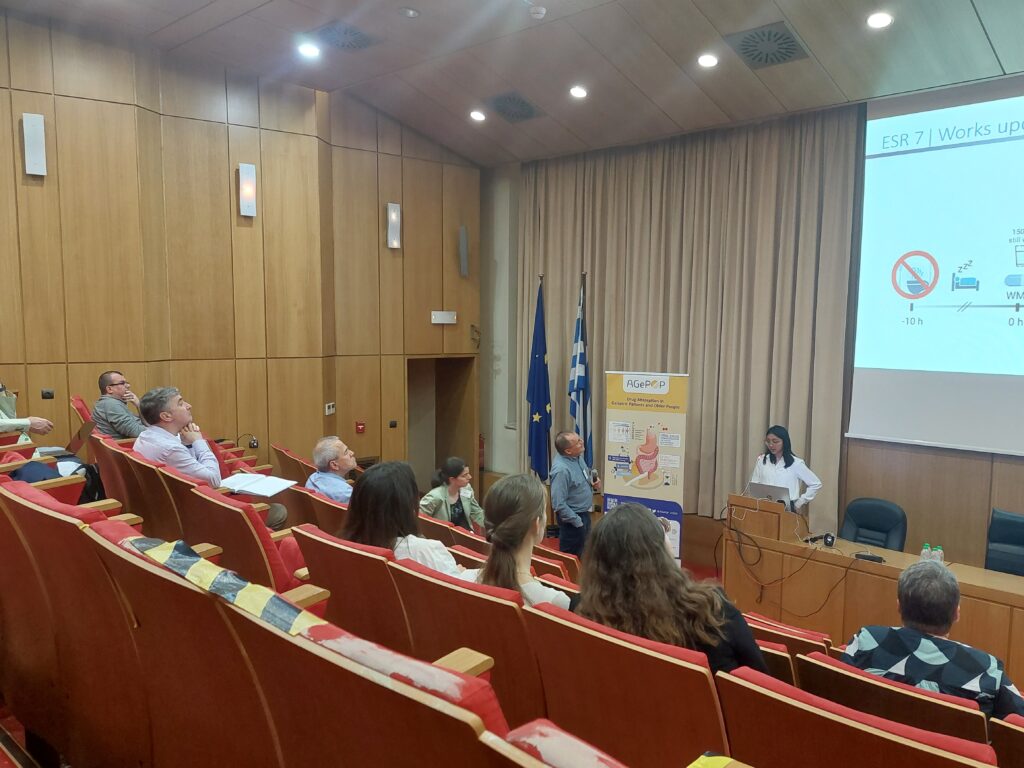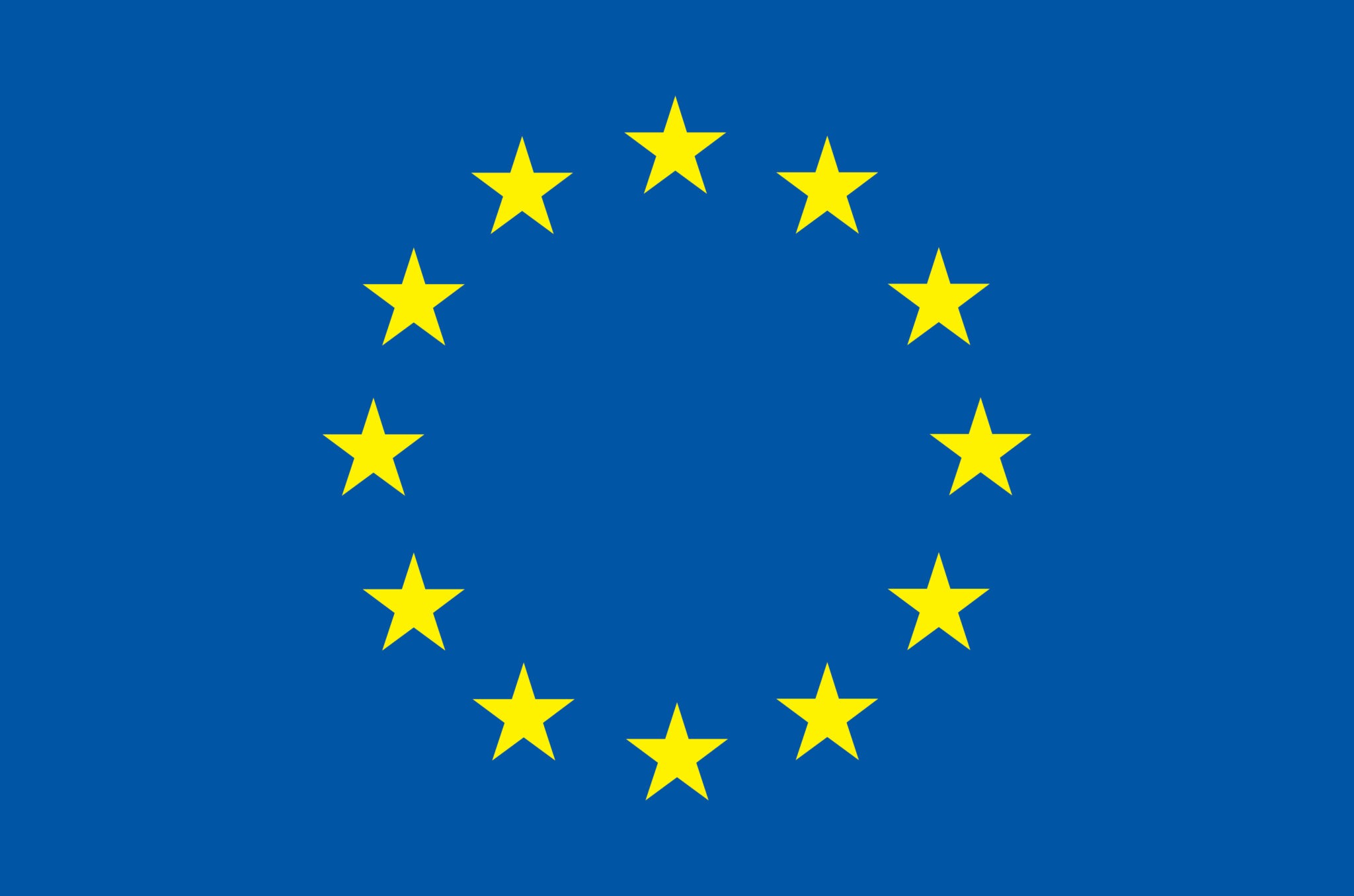Highlights from the 3rd AGePOP week: Trainings, Presentations and Networking in Athens
Under the umbrella of the third and final AGePOP week, the Innovative Training Network (ITN) funded by the European Union combined activities ranging from company visits and training for the early-stage researchers (ESRs) to an Open Symposium on “Clinical studies, in vitro and in silico modelling of the luminal environment and intestinal permeability in the advanced age population”. Bringing together around 40 experts in the field to Athens, Greece, 8-12 April 2024, the AGePOP consortium enjoyed this collaborative and informative final event.
Visiting UNI-PHARMA: First-hand insights into drug manufacturing for the ESRs
The week was kicked off by a visit to the headquarters of UNI-PHARMA Pharmaceutical Laboratories S.A., where the ESRs received many interesting insights into the manufacturing process of a variety of pharmaceutical products. In addition to the production facilities, UNI-PHARMA provided an overview of their current projects relating to oral formulations and the related regulatory challenges. The immersive experience proved to be inspiring and all of the ESRs extend their deep gratitude to Dr. Eleni Tsintavi and the other employees of UNI-Pharma for their hospitality.
ESR presentations
Tuesday and Wednesday were all about the latest research from the ESRs investigating drug absorption in the advanced age population. The AGePOP members met at the historical National and Kapodistrian University of Athens, Greece, welcomed by Dr. Maria Vertzoni, the project coordinator. All ESRs then had the opportunity to present their latest results.

The presentations led to intense discussions with the audience, and the ESRs were provided with valuable input for the last steps of their PhDs. ESR 11, Cleo Demeester mentions that “It was wonderful to see the outcomes of the projects that we have collaborated on during the last few years.” Other members of the consortium found it impressive to see the identified gaps closed and look forward to what is left to come during the final project year. Overall, there is a sense of accomplishment and hope that the data, publications and presentations generated by the consortium will make oral drug development safer for older and geriatric people.

Transferable skills for a successful career
One of the features of MSCA ITNs is the intense training provided to the PhD candidates in both scientific and transferable skills. This AGePOP week was no exception and they were involved in additional training modules. First, as part of their business skills’ training, each ESR had to pitch a follow-up research project based on their work during AGePOP and the identified gaps or opportunities resulting from it. Guided by Dr. Susanne Page (Roche) and Dr. Clive Wilson (Strathclyde Institute of Pharmacy & Biomedical Sciences), the consortium and external advisors served as a review board, asking probing questions simulating a setting that the ESRs would face when approaching a funding body for their future research.
Board meetings: Evaluating the progress
The Wednesday afternoon was dedicated to a closed session of the Supervisory Board checking in with the Scientific Advisory Board on the project’s progress. While AGePOP is running smoothly, the advisors James Butler (GlaxoSmithKline), Mark McAllister (Pfizer) and Clive Wilson (Strathclyde Institute of Pharmacy & Biomedical Sciences) as well as ethics advisor David Brayden (University College Dublin) spotted some additional opportunities for follow-up research avenues and shared their valued perspective on how AGePOP can exploit its potential in the remaining 8 project months.
AGePOP Networking Dinner
The evening before the Open Symposium, all participants of the AGePOP week were invited to a traditional Greek dinner at the Kapodistriakon Restaurant, a lovely opportunity to meet each other and engage in an informal setting. Not to mention, the several courses of delicious food that put everyone in a good mood for the next day’s symposium.
AGePOP Open Symposium: Additional input from experts
Organized into three sessions, the day began with talks from Dr. Mark McAllister (Pfizer) and Dr. Cordula Stillhart (Roche) concerning “Patient-focused Biopharmaceutics”. The audience was provided with an industrial perspective on important considerations for centering the patient during drug development. The second session entitled “In vivo and in vitro evaluation of oral products with emphasis to special populations” comprised of four talks from both industry and academia where case examples were presented. Dr. David Brayden (University College Dublin) discussed the advantages of sodium caprate as an intestinal permeation enhancer for an oral drug product, followed by Dr. James Mann (AstraZeneca) with an overview of the progression of the use of various in vitro technologies during early drug development. The final two talks for this session were given by Dr. James Butler (GSK) with a discussion of dosing scenarios in special patient populations and Dr. Alvaro Lopez Marmol (Abbvie) with case-studies illustrating the importance of early evaluation of physicochemical drug-drug interaction. The symposium closed with the topic “Performing Clinical Trials in Older Individuals”, where Dr. Alevizopoulos (NKUA) and Dr. Jos Tournoy (KU Leuven) led the audience through the common obstacles that must be considered when enrolling older people in clinical trials.
Beyond AGePOP: Future Outlook
As Europe envisages a future where the healthcare needs of the entire population are met, the AGePOP project exemplifies such an initiative. Dr. Henriette Hummler is the first ESR to defend her PhD thesis, however, the other ESRs will soon follow suit and then move forward into academia or industry positions to implement their obtained skills and knowledge for the future of Europe.
Written in collaboration with Accelopment, Donnia Robins and Jonas Kusch (ESRs and PhD candidates)

